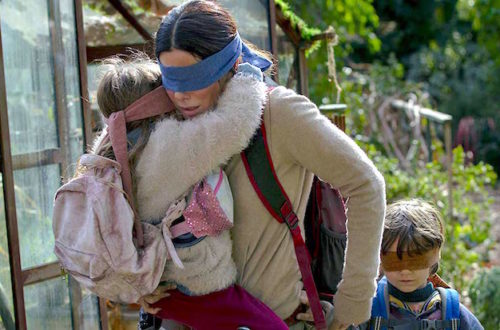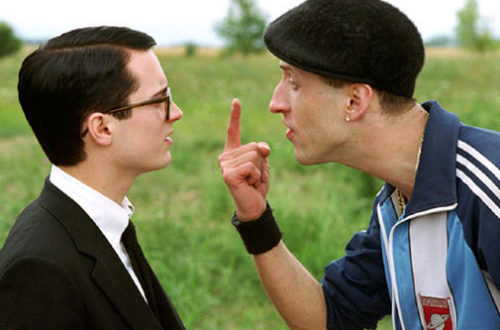Recently, I’ve read a few of the “We Need to Talk About Hopper” articles dealing with Stranger Things‘ Jim Hopper’s “problematic” qualities. Some of those pieces, I think, are designed to be clickbait–along the lines of the “Why Are Characters Smoking in Stranger Things?” and “Those Kids Need to Wear Helmets When They Ride Their Bikes” articles–but this sort of discussion always fascinates me because a large portion of my job is talking meaningfully about stories and the characters who populate them.
Here’s the simplified version of that argument: Police Chief Jim Hopper is problematic because he’s angry and unruly and he drinks and smokes too much. He has Schlitz for breakfast and probably even smokes when he’s in the shower. Since he can’t talk honestly about his feelings, he lashes out verbally at the people who love him. When things don’t go his way, he yells and beats up the bad guys.
Prominently featuring a character like this in a popular series, the argument goes, is irresponsible and sends the damaging message that these qualities are not only okay, they’re desirable. They help the character get what he wants in life. If the character is someone we’re meant to like, we’re also being asked to tacitly approve of the behavior.
As you might’ve guessed, I disagree; or, at the very least, I believe it’s not that simple.
Regarding some of the glib rebuttals to the argument, I don’t buy into the “It’s only a story, so just chill out, nerd” response, because literature is a mirror of life, and vice versa, and well-drawn characters and stories reveal important truths about us, both as creators and consumers. It’s usually much more than “just a story.” If you and I don’t agree on that premise, we probably can’t have a meaningful discussion about literature.
Here’s my response to the original Bad Hopper argument: On a fundamental level, it ignores the idea that we should not only be able to look to our art for people who look and act like us; we should also be able to see the ones who are messy and who reflect our own flaws back to us. Sometimes they get their way, sometimes they don’t. Ultimately, though, they’re the ones who break our hearts because we can imagine better lives for them, even when they can’t. Sort of like life.
Just because a flawed character is prominent or powerful in a story, that doesn’t mean we’re being asked to be like them, or to champion their harmful qualities. If we care about them, they’re tragically moving, invoking, as Aristotle argued, pity and fear in the audience.
Flawed characters are often the most compelling, whether they drink too much, or they’re traumatized, angry, hurting, and lashing out. This isn’t because we want to be like them; after all, they act like jerks, cause pain to those who love them, and hurt themselves in the process. They compel us because they make us feel their pain. Sort of like life.
If they’re over the top, or poorly drawn, they can be as boring and ineffective as a white hat hero or cartoonish villain. If written and portrayed skillfully, however, a character like Jim Hopper can give us someone to love, even as we hope he’ll eventually get things straight and learn to enjoy his life and the people who love him.
Sometimes, that better life never happens. Sort of like life.





